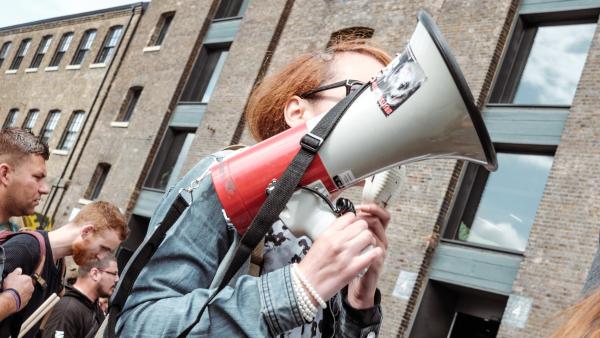There's no shortage of forecasts about the future these days. But did you know that ordinary people can out-predict the pros?
Politics and History
David Shields says the New York Times is complicit in romanticizing war through imagery.
Is war inevitable? Leymah Gbowee loudly and strongly says no. And she’s got proof.
The title of political scientist Benjamin Ginsberg's book says it all, “The Worth of War.” In it, he argues that war has greatly benefited civilization.
Revenge is a major theme in Elliot Ackerman’s debut novel “Green on Blue.” The novel is told from the point-of-view of an Afghan boy named Aziz who’s seeking to avenge his brother Ali.
Androids may seem like a modern idea, but there were life-size androids in the 18th century — beautiful robot women who could look around and even play the harpsichord. Historian Heidi Voskuhl tells this remarkable story.
We confront the politics of the voice, from stereotyping to vocal fry. And we also talk to a soundscape ecologist who listens—perhaps closer than anyone—to the voices of the natural world.
Checking someone else’s privilege can be a form of hostility. Checking your own can be an act of humility. Does anyone actually benefit from talking about privilege? This hour, the benefits and drawbacks of talking about privilege.








